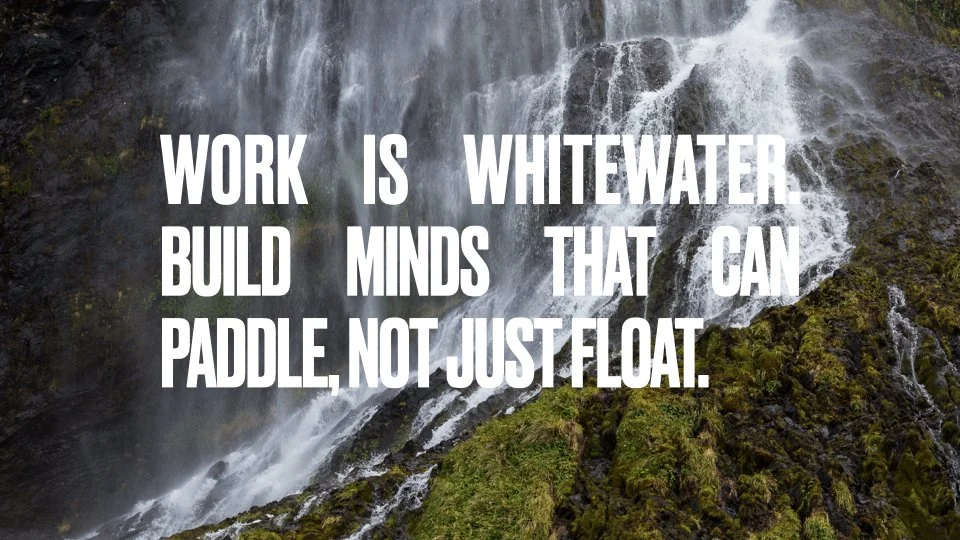Leading in the Whitewater: Why Psychological Strength Is the New Competitive Edge
What kayaking can teach us about leadership in today’s world of work.
The workplace today feels less like a calm lake — and more like whitewater.
Unpredictable. Fast-moving. Constantly shifting.
And just like in whitewater kayaking, thriving in this environment isn’t about staying dry — it’s about staying upright.
This powerful metaphor was first introduced to me in TomorrowMind, a research-driven book by Gabriella Rosen Kellerman and Martin Seligman.
The premise is simple but profound: to succeed in a world of continuous disruption, we need to develop the psychological capabilities that help us adapt, connect, and lead under pressure.
It’s not just a metaphor — it’s science.
The PRISM of Future-Ready Teams
Backed by global research and large-scale workplace studies, TomorrowMind presents the PRISM model — five core capabilities that help individuals and teams not just survive, but thrive, in uncertain environments:
🔮 Prospection – the ability to anticipate and prepare for what’s coming
💪 Resilience – staying grounded and recovering quickly from setbacks
🎨 Innovation & Creativity – approaching problems with fresh thinking
🤝 Social Support – building trust and psychological safety in teams
🔥 Meaning & Mattering – understanding that your work has value and impact
These aren’t soft skills.
They are science-backed essentials for navigating the complexity of modern work.
From Strategy to Psychology: A Shift in Leadership Mindset
As team leads, managers, or executives, we’re often focused on strategy, execution, and performance. But here’s the truth:
Your team’s ability to perform is directly tied to their psychological readiness.
Culture is built in moments — in how we respond to pressure, how we give feedback, how we listen. And in today’s whitewater world, leadership is no longer just about making decisions at the top.
It’s about designing an environment where adaptability, trust, and creativity can take root.
The Question I Keep Returning To
Here’s a challenge worth sitting with:
If someone shadowed your team for a week — would they leave more creative, more connected, more resilient?
Or more guarded, more burned out?
Every interaction is culture in motion.
Leadership isn’t just strategic — it’s psychological architecture.
Final Thought
We can’t slow the current.
But we can shape the mindset that helps our people paddle through it.
And that’s where modern leadership truly begins.

